How All of Russian TV Became State-Controlled
Short biography of the freedom that never happened.

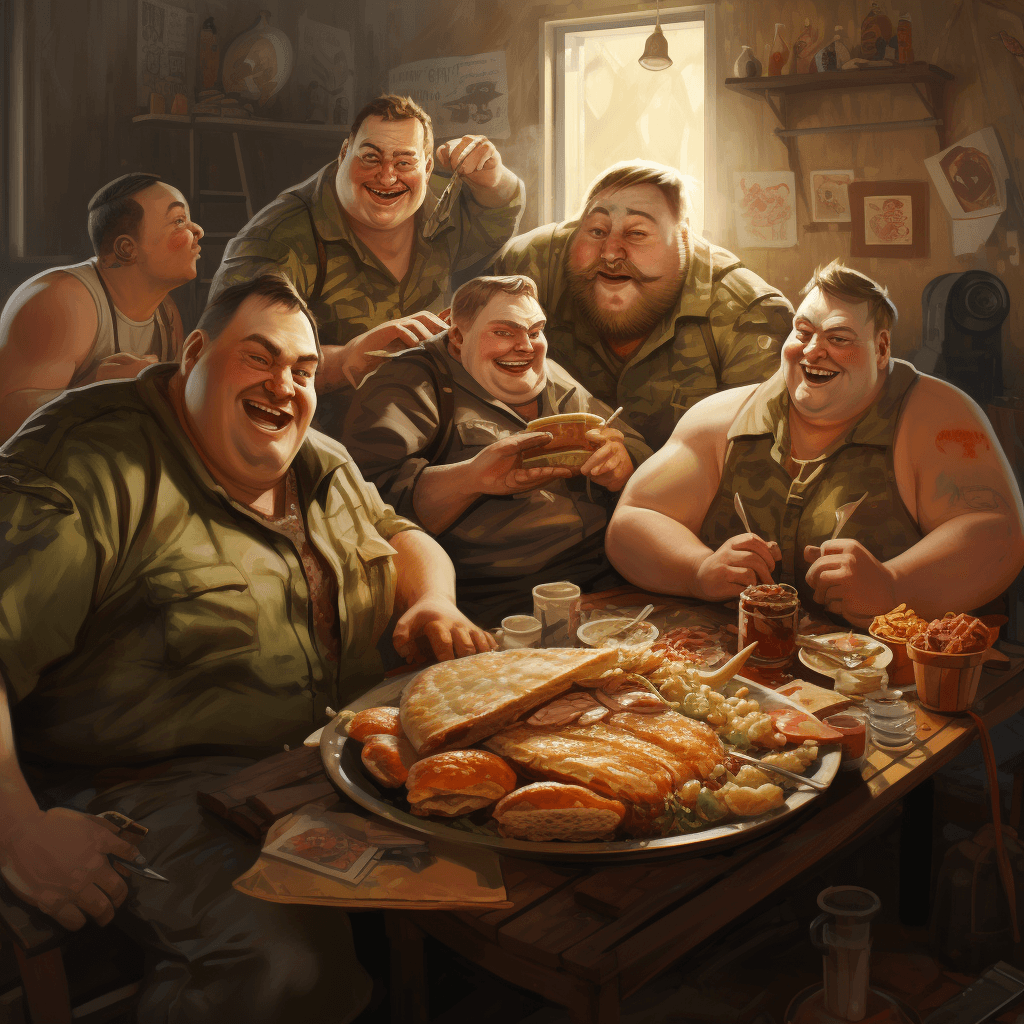

Social and Labour Rights: Trade unions play a significant role in safeguarding workers' rights and ensuring fairer working conditions. In Europe, trade unions traditionally wield substantial influence and are considered a key instrument for achieving social justice. Among individuals with left-leaning perspectives, there is often a perception that Russia leans leftward, particularly concerning workers' rights. Is this indeed the case? Let us delve into it.
Trade unions in Russia began to emerge at the end of the 19th century, alongside other European countries. These associations were known as workers' unions. Their situation was challenging in tsarist Russia; they were periodically banned or closed, only to resume their activities later on. Following the revolution and the establishment of the Soviet state, the situation changed.
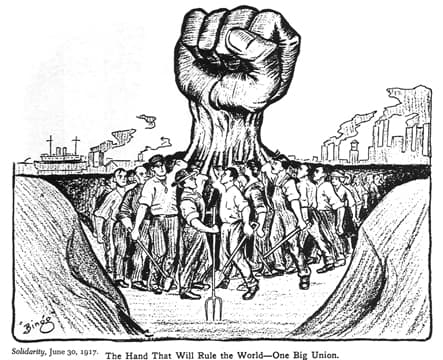
Ilustration from a Solidarity journal
The activities of the trade unions underwent significant change when they became integrated into the state apparatus and became subordinate to the decisions of the Communist Party of the Soviet Union. Leadership was carried out through the All-Union Central Council of Trade Unions. As the state claimed to be a socialist state representing the working class, the employer was allegedly also part of the working class, which would eliminate the primary contradiction between employers and workers.
The assistance of trade unions primarily focused on resolving minor domestic and organisational issues (e.g. offering free vouchers to sanatoriums, organising holidays, addressing matters of safety), all without engaging in independent political activities or real protection of rights. This has become one of the reasons why workers in today’s Russia perceive trade unions as organisations that deal with minor issues at the expense of the employees themselves. According to a 2019 study by VCIOM, 53% believe existing trade unions do not effectively protect labour rights and, moreover, 82% think they play an insignificant role in the country. Only 2% of workers turn to trade unions or labour collective councils to address when their rights are violated.
Nevertheless, the total number of union members in the USSR was substantial — over 113.5 million workers (as of March 1977). At the peak of the Soviet era, trade unions brought together more than 98% of the workforce. In the USSR, trade unions were unavoidable in practice and existed basically not to fight for the workers’ rights but to control the workers. The first attempts to establish independent trade unions (Free Trade Union, Independent Union of Soviet Workers, Free Interprofessional Association of Workers) took place in 1978 and resulted in repression against those who initiated them.
Thanks to the law, the process of creating a primary trade union organisation is relatively straightforward. It requires just three like-minded workers to convene a meeting and draft a signed protocol. This simple procedure grants the ability to:
Furthermore, trade unions have the option to form larger associations among themselves. However, the simplicity of the legal procedure of union creation does not mean not having difficulties with employers or the government afterwards.
In modern Russia, there is undoubtedly a demand for union activities, with a high percentage of precarious workers – ranging from 30% to 50% of the workforce – and overall low protection of workers' rights, resulting in high levels of poverty. However, there are several challenges hindering the development of the labour union movement. Many people live paycheck to paycheck and cannot afford to participate in protests, as this time is not compensated, or in the worst case, they face dismissal. Temporary contracts are prevalent, and there are difficulties in disseminating information due to lack of media coverage of independent trade unions and censorship.
Let us delve into the current landscape of trade unions in the Russian Federation, their affiliations, structure, challenges, governmental influence, and legal conflicts. It is noteworthy that the soviet notion of trade unions still largely persists; however, worker trust in them has significantly wavered, contributing to a steady decline in membership. At the same time, it is important to note that independent trade unions do exist in Russia, although they face major challenges.
Big portion of trade unions benefit of perceived soviet legacy while staying loyal to the current regime in Russia. As such, their existence provides little authentic labor advocacy and multitude of issues:
One of the biggest trade union organisations in Russia is the Federation of Independent Trade Unions of Russia (FNPR). The FNPR differs from truly independent trade unions in Russia in that ordinary trade union organisations can be both employees and employers. The website of the FNPR states that the legal services of the FNPR and its member organisations constantly participate in court hearings resolving labour disputes and conflicts.
In 2014, Russian courts handled 507,226 labour disputes in their initial hearings, resulting in court decisions. FNPR lawyers were engaged in fewer than 3% of these legal conflicts, prompting experts to suggest that the extent of FNPR's involvement in labour disputes has been greatly overestimated.
In 1991, after the collapse of the USSR, the All-Union Central Council of Trade Unions was dissolved, and the Federation of Independent Trade Unions of Russia (a loyalist trade union) became its successor and inherited all the property (and members) of the All-Union Central Council of Trade Unions on the territory of the Russian Federation. The legacy of the USSR, in addition to the huge number of members of the trade union movement, was the colossal property of trade unions, which (as of 1987) was estimated at more than 9 billion Soviet rubles (or about more than 18 billion dollars in modern equivalent) including more than:
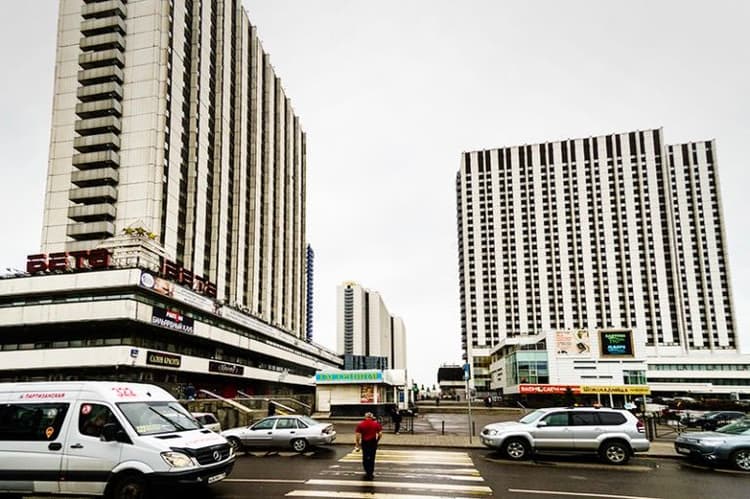
RBK, one of the examples of FNPR property in Moscow
The ownership structure of trade union real estate is extremely confusing and non-transparent. The Federation of Independent Trade Unions of Russia established dozens of companies that manage its facilities throughout the country. If we calculate the revenue of these companies for the period from 2010 to 2014, we get the amount of almost 45 billion rubles.
There are several examples of high-ranking officials of loyalist trade unions becoming state officials and promoters of anti-labour policies in the government.
For example, in 2011-2016, a few State Duma deputies elected from among the activists of the FNPR played a significant role in suppressing protest actions and in legislatively restricting the possibility of holding them.
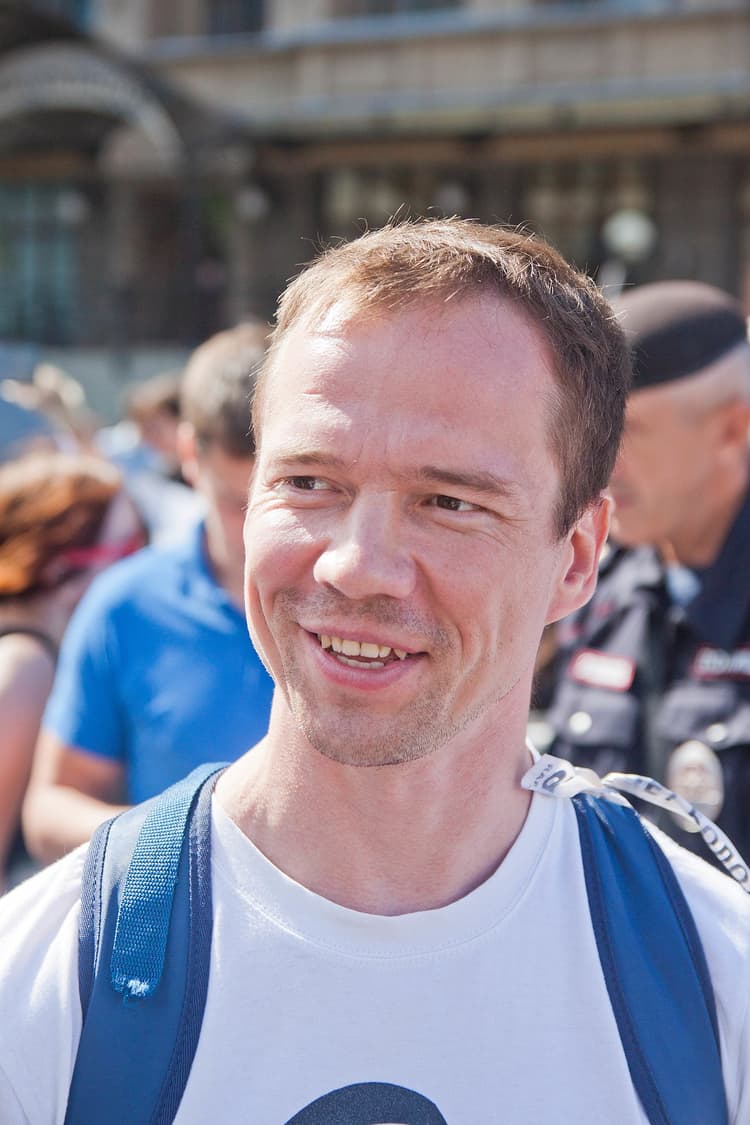
Ildar Dadin became the first convicted under article 212.1, giving the law an informal name
Deputy from United Russia Alexander Sidyakin (the head of the Department of Collective Actions and Development of the Trade Union Movement of the FNPR) became the initiator of a high-profile bill on a multiple increase in fines for individuals and legal entities for violations of the law during mass actions. In 2014, Aleksandr Sidyakin became a co-author of a bill on a new toughening of penalties for participating in rallies that were not authorised by the authorities.
Another “trade union” State Duma deputy, Valery Trapeznikov, who was elected in 2011 from United Russia, said in 2012 that he had spent “his whole life at rallies” since Perestroika and brought “huge crowds of people” to the streets. When protest rallies began against the falsification of the results of the 2011 State Duma elections, Trapeznikov spoke at a rally in support of the authorities, publicly calling the protesters "clowns" and "goats". Later, he supported the bills of 2012 and 2014, which toughened the responsibility for violations at street protests, up to the criminal one.
The association of socialist trade unions of the USSR "Sotsprof" was created in 1989 as an alternative to the monopoly of the All-Union Central Council of Trade Unions in the trade union movement. The leader of Sotsprof, Sergei Vostretsov, became a deputy from United Russia. He also said in 2018 that raising the retirement age was necessary.
Despite officially being a union organisation, the FNPR actually does not organise protests and strikes. They instead:
At the same time, the FNPR approved the law on the monetisation of benefits, which caused mass protests among the population.
Some trade unions are created by employers to manage them and to destroy the real actions of workers. This kind of unions is called pocket or yellow unions, as they act in the interests of employers. E.g. members of the independent teachers' union, affiliated with the Siberian Regional Labor Center (SRLC), were summoned to the school's director, where, in the presence of a representative from the education workers' union, they were offered to join the FNPR-affiliated union. Otherwise, discussions began about reducing hours, limiting opportunities for additional employment, and even potential layoffs. According to participants, the tone of the conversation was harsh and even ultimatum-like.
A similar situation occurred at the Kaliningrad Sea Port, where members of the independent dockworkers' union were grouped into a separate brigade, which was not allowed to access lucrative jobs. The condition for transferring to another brigade was not just leaving the RLC but also joining the FNPR-affiliated Union of Water Transport Workers (PVTW).
Many people may not join trade unions because their activities are primarily associated with minor tasks, such as:
And of course, a percentage of the salary must be paid as a contribution. As a result, it is difficult for the average person to perceive trade unions as playing a substantial role in safeguarding workers' rights.
According to media sources, the chairman of FNPR, Mikhail Shmakov, has illegally privatised and sold to external companies or given to members of the FNPR leadership families 131 objects out of 24 trade union institutions for the amount of 3.3 billion rubles. The objects mainly included health resorts designated for workers. The profits from the health resorts were illegally extorted as “rent”.
Union funds were misallocated, with substantial sums spent on excessive board member salaries, one-time bonuses, gifts, and personal business ventures, rather than improving healthcare facilities. Although the court has seized the lands from the illegal ownership, many health facilities have been demolished or damaged. Nobody faced criminal prosecution after the court proceedings - including the chairman himself.
All of the above affects the trust among workers and reduces the number of members of trade unions at a tremendous speed, from ~54 million members in 1990 to ~20.7 million members in 2016. Today, trade unions in Russia are associated simply with the collection of 1% of the salary for holiday gifts, and not with the protection of labour.
Real political activity and trade union activism is currently severely limited by state opposition and repression. There were 170 protests in the first half of 2017, down 12% from the year before. The increase in the number of labour protests, which was observed in 2015-2016 stopped. In 2011-2012, the authorities used law enforcement agencies to hinder the activities to protect the legitimate rights and interests of workers in the Eastern Port.
In 2018, the Russia-wide “Alliance of Teachers” was created. They are dedicated to defending the rights of education workers, providing legal and media support to those whose rights have been violated. The union openly opposes the Russian invasion of Ukraine and the military propaganda in schools.
The "Alliance of Doctors" also emerged as a prominent activist group in 2018, it's led by ophthalmologist Anastasia Vasilieva. They conduct union-led inspections of medical facilities, sharing videos on their YouTube channel. These inspections often were opposed by the authorities and hospital directors. In certain cases, Alliance inspectors were barred from hospitals, prompting directors to call the police, who were required by law to assist union inspections. The Alliance organised protests against healthcare salary cuts and orchestrated "Italian strikes".
It should be noted that recently Anastasia Vasilieva openly supported the Russian invasion of Ukraine. On their channel, the Alliance began posting videos in support of Donbas doctors.
The “Action" is another trade union for healthcare workers. They employ various methods besides protests and strikes in defending workers' rights, including legal defence, collective negotiations, and legal complaints to regulatory bodies.
The independent trade union of journalists was created by employees of several media outlets after an attack on their colleagues near the border of Chechnya with Ingushetia. By 2019, about 480 journalists from all over the country had joined the union. The union organised solidarity actions with colleagues who were persecuted because of their activities. On resonant cases of pressure on the media, the trade union issued statements about acts of censorship.
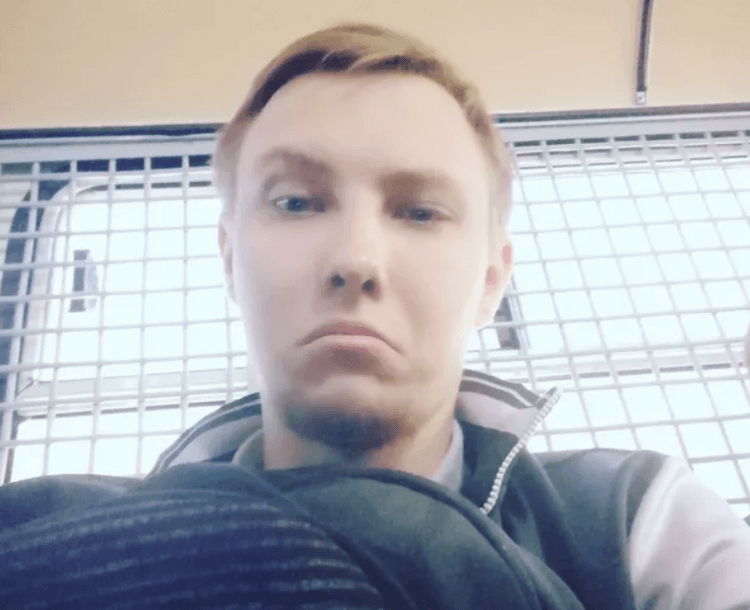
Kirill Ukraintsev, leader of the Courier trade union, photo from the police car
The trade union "Courier" is engaged in protecting the labour rights and interests of workers of food delivery services. The organisation has been operating since June 2020, when several dozen couriers in Moscow went on strike due to delayed payments to employees of one of the food delivery services. With the help of the strike, payments were resumed. In addition, union activists managed to get the company to provide couriers with warm winter jackets to work in the cold. Previously, couriers were not given warm uniform jackets, instead they were forced to work in raincoats or thin jackets or face a fine for lack of uniform.
The chairman of the “Courier” trade union has been under arrest since April 2022 for alleged violations of the procedure for holding public actions.
Its activists opposed:
Leonid Shaydurov, the founder of the union, complained about the interest of "fighters against extremism" in him, according to the Fontanka publication, the police threatened him with a criminal case.
Politician Alexei Navalny founded the Promzona trade union for citizens employed at enterprises of the penitentiary system, that is, prisoners and employees of prison colonies.
Some of the aforementioned trade unions (e.g. the “Action”) are members of the Confederation of Labour of Russia. Its goals and methods, more than FNPR, correspond to the concept of a classical trade union. They not only negotiate with employers, but also go to courts, organise rallies and protests. All this leads to the fact that the Confederation of Labor of Russia often faced persecution of its activists.
Эта статья еще не переведена. Мы ищем волонтеров, которые могли бы помочь нам с этим.
Short biography of the freedom that never happened.

...не сдавайтесь и не отчаивайтесь, делайте то, что считаете правильным. Россия обязательно будет свободной.
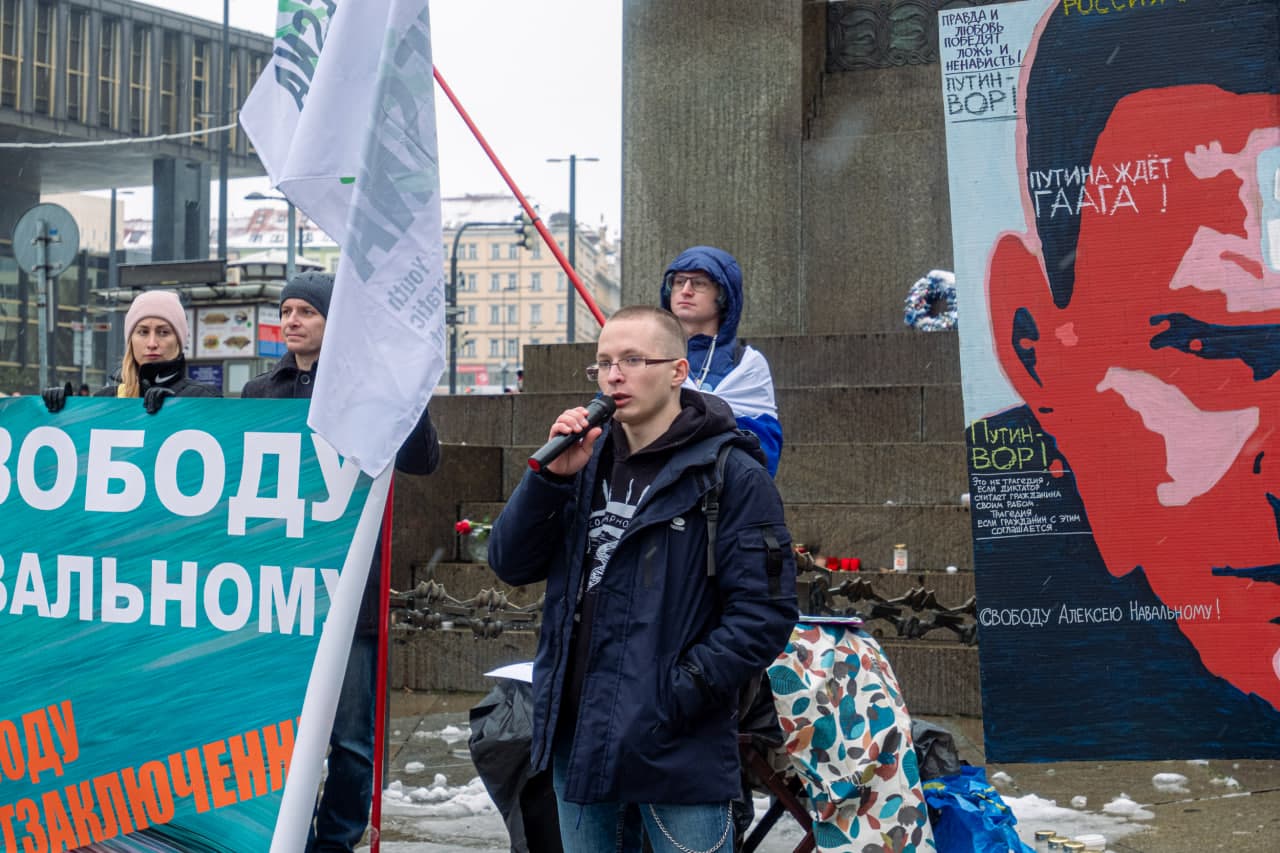
Resistance persists in Russian schools despite strong state control. Teachers and students oppose the creeping of ideology as well as election frauds. What forms do such protests typically take? What do the protesters risk?
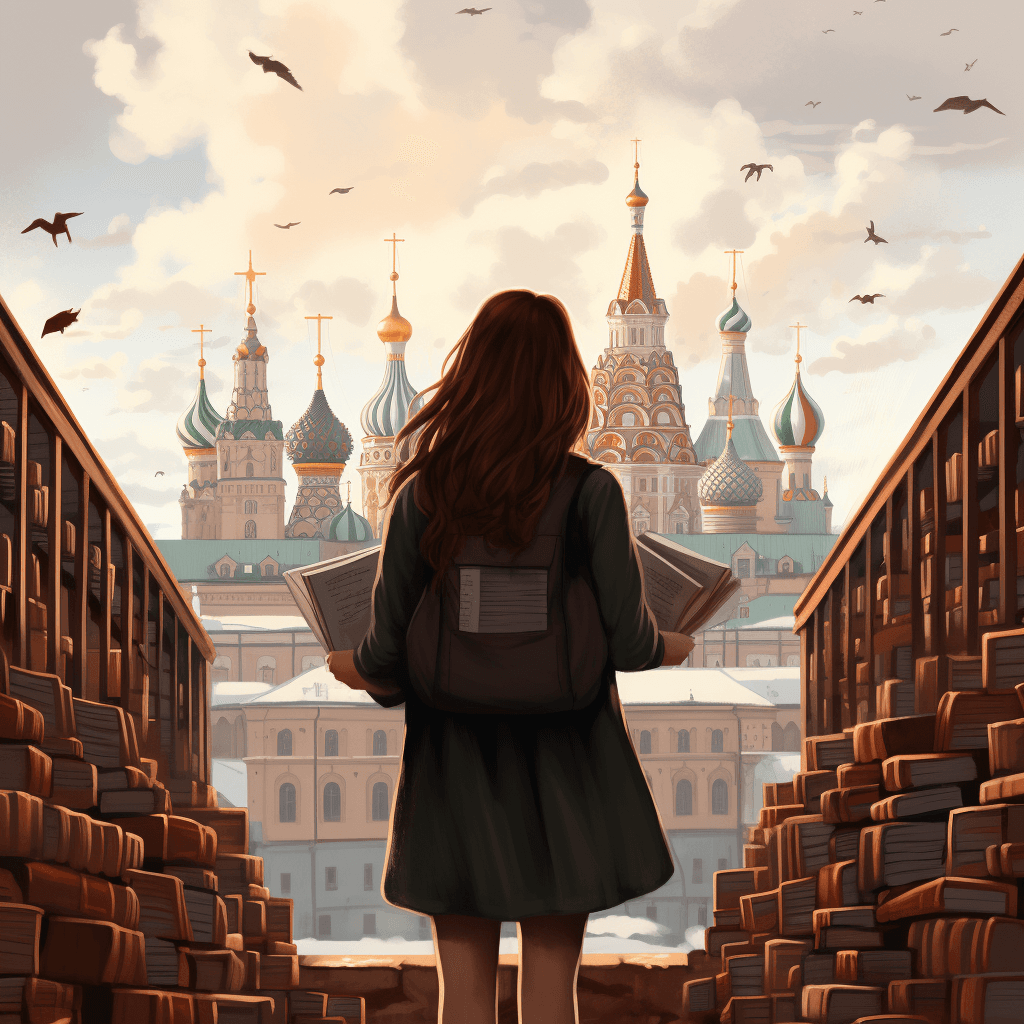
Наша медиаплатформа не существовала бы без интернациональной команды волонтеров. Хотите стать одним из них? Вот список открытых на данный момент вакансий:
Если вы хотите помочь нашему проекту, но не нашли интересующей вас вакансии, дайте нам знать:
Мы рассказываем о текущих проблемах России и ее людей, выступаем против войны и за демократию. Мы стремимся сделать наш контент максимально доступным для международной аудитории.
Хотите ли вы поучаствовать в российском проекте, направленном против войны?
More info for media
Мы хотим, чтобы россиян, выступающих за мир и демократию, услышали. Мы публикуем их истории и берем у них интервью в проекте Ask a Russian.
Вы - россиянин или знаете кого-то, кто хотел бы поделиться своей историей? Пожалуйста, напишите нам. Ваш опыт поможет людям понять, как устроена Россия.
Мы можем опубликовать ваш рассказ анонимно.
Наш проект реализуется силами волонтеров - ни один из членов команды не получает никакой оплаты. Однако, у проекта есть текущие расходы: хостинг, домены, подписка на платные онлайн-сервисы (такие как Midjourney или Fillout.com), реклама.
Номер нашего банковского счета, зарегестрированного в Fio Banka (Чехия), 2702660360/2010. Банковский перевод возможно отправить по реквезитам либо отсканировав QR-код в вашем банковском приложении:




Россия начала войну против Украины. Эта война продолжается с 2014 года. Она только обострилась 24 февраля 2022 года. Страдают миллионы украинцев. Виновные в этом должны предстать перед судом за свои преступления.
Российский режим пытается заставить замолчать либеральные голоса. Россияне, настроенные против войны, существуют, и российский режим всеми силами пытается заставить их замолчать. Мы хотим, чтобы их голоса были услышаны.
Сотрудничество имеет решающее значение. Российские либеральные инициативы порой трудно воспринимаются европейской общественностью. Правовой, социальный и исторический контекст России не всегда понятен. Мы хотим поделиться информацией, навести мосты и соединить либеральную Россию с Западом.
Мы верим в диалог, а не в изоляцию. Оппозиционные силы России не смогут ничего изменить без поддержки демократического мира. Мы также считаем, что диалог должен быть двухсторонним.
Выбор за вами. Гнев, вызванный приступлениями России, понятен. Вам решать, хотите ли вы прислушаться к россиянам, выступающим против войны и режима.